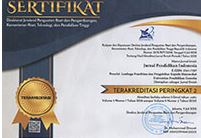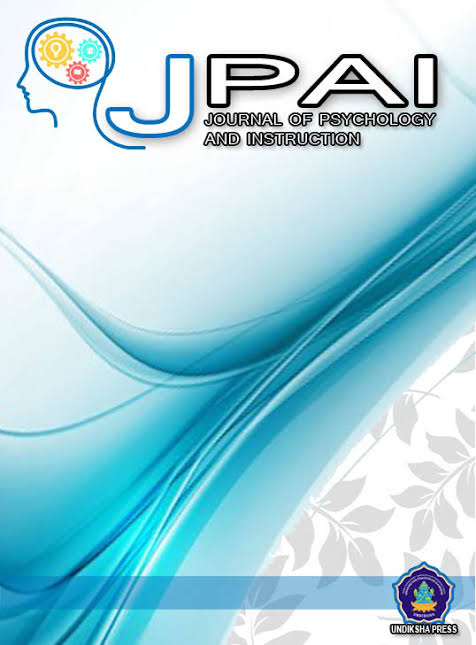SELF-FORGIVENESS DAN KESEJAHTERAAN PSIKOLOGIS PADA NARAPIDANA LEMBAGA PEMASYARAKATAN KELAS 2A AMBARAWA
Keywords:
Self-Forgiveness, Psychological Well-Being, ConvictsAbstract
While serving his sentence, the convict will be placed in a Correctional Institution (LP). In Indonesia, these places experience overcapacity which can result in overcrowding of prisoners. These limitations on space and movement are also experienced by inmates at class 2A Ambarawa prison which results in inmates experiencing psychological problems such as low self-acceptance, feelings of guilt, and difficulty forgiving themselves. This can prevent the achievement of psychological well-being in prisoners while serving their sentence in Class 2A Ambarawa Penitentiary. Therefore, this study aims to examine the relationship between self-forgiveness and the psychological well-being of class 2A Ambarawa prison inmates. This study uses a quantitative method with a correlational design. A total of 178 participants were involved using the sample random sampling technique. The research measurement used the self-forgiveness scale (a=0.894) and psychological well-being, it was measured using the Ryff Psychological Well-Being Scale (a=0.843). The results of the study proved that there was a significant positive relationship between self-forgiveness and psychological well-being in Class 2A Ambarawa Penitentiary inmates (r = 0.618 and a significant 0.000). This indicates that self-forgiveness is one of the factors related to the psychological well-being of class 2A Ambarawa Penitentiary inmates. This indicates that self-forgiveness is one of the factors related to improving the psychological well-being of inmates at Class 2A Penitentiary in Ambarawa. This research implies that it is hoped that convicts who are serving a period of detention will be able to increase their self-forgiveness so that they can overcome and survive feelings of guilt, and anxiety while still being able to achieve psychological well-being in their lives.
References
Angela, M., Felicia, F., & Cipta, F. (2021). Hubungan Antara Forgiveness dan Psychological Well-being pada Korban Kekerasan Dalam Rumah Tangga. Jurnal Penelitian Pendidikan, Psikologis dan Kesehatan (J-P3K), 2(1), 61-67.
Astuti, N. K. N., Mangku, D. G. S., & Yuliartini, N. P. R. (2020). Implementasi Hak Pistole Terhadap Narapidana Kurungan Di Lembaga Pemasyarakatan Kelas II B Singaraja. Jurnal Komunitas Yustisia, 3(1), 37-47.
Coetzer, W. C. (2020). Selfvergifnis–’n Afgeskeepte area binne die pastoraat. In die Skriflig, 54(2), 1-9.
Diener, E., Wirtz, D., Tov, W., Kim-Prieto, C., Choi, D. W., Oishi, S., & Biswas-Diener, R. (2010). New well-being measures: Short scales to assess flourishing and positive and negative feelings. Social indicators research, 97(2), 143-156.
Enright, R. D. (1996). Counseling within the forgiveness triad: On forgiving, receiving forgiveness, and self-forgiveness. Counseling and Values, 40(2), 107–126. https://doi.org/10.1002/j.2161-007X.1996.tb00844.x
Fadhil, A. (2021). Evaluasi Properti Psikometris Skala Psychological Well-Being (PWB) Versi Indonesia. Jurnal Psikologis Universitas Padang, 5(2), 4666–4674.
Freire, C., Ferradás, M. D. M., Valle, A., Núñez, J. C., & Vallejo, G. (2016). Profiles of psychological well-being and coping strategies among university students. Frontiers in psychology, 7, 1554.
Handayani, N. D. P. (2021). Hubungan Antara Self-forgiveness Dengan Kesejahteraan Psikologis Pada Narapidana Perempuan di LP Kelas IIA Kota Semarang 1. Psikologis, Fakultas Psikologis, Universitas Islam Sultan Agung, 52–60.
Larasati, D. A., & Widyastuti, T. (2020). Pengembangan skala self-forgiveness. Acta Psychologia, 2(1), 80–90.
Oruh, S., Agustang, A., & Theresia, M. (2021). Kesejahteraan psikologis (studi Pada Dewasa Madya Yang Belum Menikah Di Kota Makassar). Creswell 2014.
Paleari, G. F., Danioni, F., Pelucchi, S., Rita, M., Daniel, L., & Camillo, L. (2022). The relationship between self‐forgiveness and psychological wellbeing in prison inmates: The mediating role of mindfulness. Criminal Behaviour and Mental Health, August, 1–13. https://doi.org/10.1002/cbm.2260
Prabowo, A. (2016). Kesejahteraan psikologis remaja di sekolah. Jurnal Ilmiah Psikologi Terapan, 4(2), 246-260.
Rangganadhan, A. R., & Todorov, N. (2010). Personality and self-forgiveness: The roles of shame, guilt, empathy and conciliatory behavior. Journal of social and clinical psychology, 29(1), 1-22.
Ryff, C. D. (1989). Happiness is everything, or is it? Explorations on the meaning of psychological well-being. Journal of personality and social psychology, 57(6), 1069.
Tacasily, Y. O. M. (2021). Hubungan Forgiveness dan Psychological Well-Being pada Mahasiswa yang Pernah Mengalami Putus Cinta. Jurnal Ilmiah Bimbingan Konseling Undiksha, 12(2), 259–267. https://doi.org/10.23887/jibk.v12i2.34199
Ula, S. T. (2014). Makna Hidup Bagi Narapidana. Hisbah: Jurnal Bimbingan Konseling Dan Dakwah Islam, 11(1), 15–36. https://doi.org/10.14421/hisbah.2014.111-02
Welta, O., & Agung, I. M. (2017). Kesesakan dan masa hukuman dengan stres pada narapidana. Jurnal RAP (Riset Aktual Psikologis Universitas Negeri Padang), 8(1).
Wulandari, I., & Megawati, F. E. (2020, January). The role of forgiveness on psychological well-being in adolescents: A review. In 5th ASEAN Conference on Psychology, Counselling, and Humanities (ACPCH 2019) (pp. 99-103). Atlantis Press.
Woodyatt, L., & Wenzel, M. (2013). Self-forgiveness and restoration of an offender following an interpersonal transgression. Journal of Social and Clinical Psychology, 32(2), 225.
Woodyatt, L., Worthington, E. L., Wenzel, M., & Griffin, B. J. (2017). Orientation to the psychology of self-forgiveness. In Handbook of the psychology of self-forgiveness (pp. 3-16). Springer.










